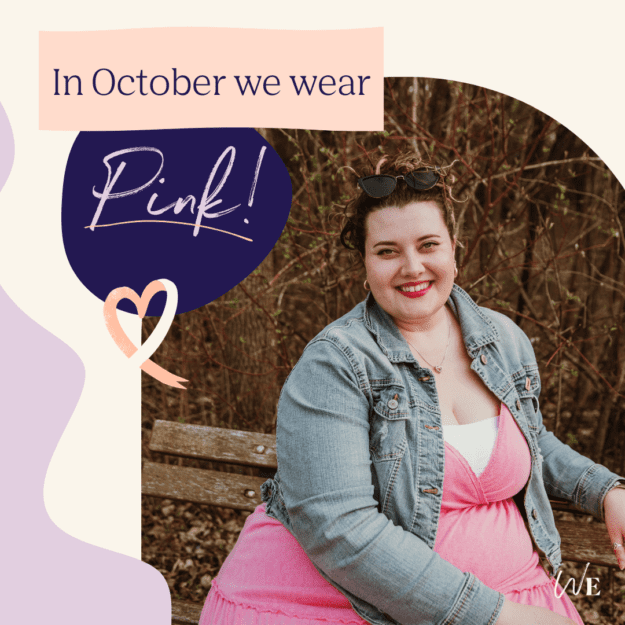In October WE wear pink!
October 19, 2023
October is Breast Cancer Awareness Month
Breast cancer is the most common cancer in the UK. There are around 55 thousand new cases recorded on average each year and 1 in 7 women in the UK will develop breast cancer in their lifetime. It’s likely someone we know will develop it at some stage in their lives and like any cancer, it can be life changing and devastating.
October is Breast Cancer Awareness month, and to raise awareness, we will be providing information and links to resources and support, and also show you ways you too can get involved with fundraising and raising awareness. Charities such as Breast Cancer Now are focusing their efforts on raising awareness around secondary breast cancer, which is when cancer develops in the breasts and then spreads to another part of the body.
Who can develop breast cancer?
Anyone with breast tissue is at risk from breast cancer, meaning women face the highest risk in general across the population. Another factor is having longer and more prolonged exposure to oestrogen. Women with a high breast density are some of the most vulnerable.
Mammographic density can be identified be a mammogram, and is partially genetic and partly influenced by environment and changes over a lifetime. There are more details about potential risk factors from Breast Cancer UK.
Can men get breast cancer?
It’s uncommon, but yes, men are also at risk from breast cancer. Around 400 men are diagnosed with breast cancer in the UK every year.
What can make me susceptible to breast cancer?
Sadly almost all of us are susceptible to breast cancer, but there are several factors that can contribute to developing breast cancer:
Genetics and physical makeup
Some types of breast cancer are caused by your genetic makeup, such as the BRCA1 and BRCA2 single gene mutations. These two variants are rare, accounting for only 4% of breast cancers. Predictive genetic testing for these variants are available, which you can find more information on below.
If you have a history of breast cancer in your family or you’ve had a previous diagnosis of a benign breast disease, this can also increase your risk. Other factors such as starting your periods at an early age or a late menopause can all contribute to an increased risk of breast cancer.
Environment and lifestyle
Breast cancer can develop due to your environment and lifestyle. Age is the most significant risk factor, like most cancers. Age increases the chance of mutations accumulating in your cells, which increases your risk of cancer. Being active lowers your risk, as physical activity can help lower levels of hormones such as oestrogen which is associated with development of cancer. Drinking and smoking both contribute to developing cancer, as well as adult weight gain in post-menopausal women.
Resources and support
Breast Cancer UK have put together a very simple quiz on their website to help you recognise and make changes in your lifestyle to lower your risk of developing breast cancer. It takes
between five and ten minutes to complete, and is a great starting point for identifying how your lifestyle could be contributing to an increased risk of breast cancer.
If cancer runs in your family and you’re feeling concerned, speak to a GP who can then refer you to a local genetics service for a predictive genetic test. Referrals are based on eligibility, such as if the faulty gene has already been identified in your family or if there is a strong family
history.
Breast Cancer Now have a fantastic selection of support on their website, including talking to a specialist nurse on their helpline, speaker videos and literature.
The National Breast Cancer Foundation has links to the National Mammography Program, which can help you find free mammograms and diagnostic services for women in need.
Events for Breast Cancer Awareness Month
Get active
Breast cancer UK is encouraging everyone to get active this month. Studies show that by increasing your physical activity, you can reduce the risk of developing breast cancer by as much as 20%. This can be as small as walking extra steps in your average day, such as getting off the bus a stop or two before or not using the car for walkable distances.
Wear it Pink!
Breast Cancer Now’s event is Wear it Pink, where you can wear pink on the 20th of October and raise money to help fund breast cancer research. Find out more information and download their resources pack from their official website.
Breast cancer affects thousands of people around the UK every day. If you need support or advice, we can help you find the support you need to access through our community, whose vision is to create a strong, supportive, kind and united community of women who support each other. If you’re not sure where to start, we can help.